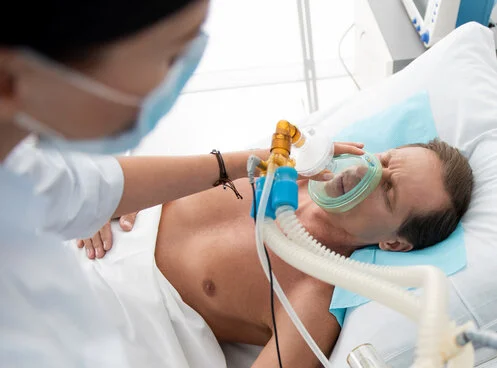In considering our own death, we may entertain a strong wish that there be no more sufferings on the other side, especially when it comes to justifying our decision to engage in physician-assisted suicide. Simply having such a wish, however, does not actually make it so.
Read MoreEven to be “slightly alive” is still to be alive. If the language of the UDDA ends up being changed to allow for a declaration of brain death even with continued hypothalamic functioning, individuals who are not-quite-dead will be treated as if they were already dead.
Read MoreWe need to “lovingly support our family members through the dying process and to make careful and morally correct decisions on their behalf as they decline in health.”
Read MoreCareful attention to pain management is of paramount importance in end-of-life care and supports both the patient and the family in a dignified way during the dying process.
Read MoreOur focus should be on the benefits and burdens of a proposed medical intervention rather than on trying to impose our own conclusion that certain individuals no longer have enough value or meaning in their lives.
Read MoreWhen ventilators are in short supply, several key ethical principles can assist clinicians.
Read MoreWhen we find ourselves nailed to our hospital bed, it can become an important personal moment for us to engage the possibility of a spiritual transformation opening before us.
Read MoreThis approach seeks to set up a particular supportive environment in which all the members of the family can receive the child following delivery, hold and name the newborn, and fully acknowledge his or her brief but meaningful life.
Read MoreToday, as modern medicine tries to rebuff death and control our humanity in ever more sophisticated ways, new temptations arise...
Read MoreWhile ending our life may seem to offer an ‘escape valve’ for the serious pressures and sufferings we face, we do well to consider the real effects of this choice both in this life, and in the life to come.
Read MoreAlthough there are not any fundamental moral objections to donating our bodies to science, certain details of how the donation is carried out are important.
Read MoreAs a set of standing medical orders, the POLST approach is inflexible. Straightforwardly following orders created outside of a particular situation may be ill-advised, improper and even harmful to the patient.
Read MoreThese judgments are tricky to make, because the specifics of each case differ, and those specifics change with time and disease progression. DNR’s should be put in place only when the circumstances warrant it, that is to say, on a case-by-case, patient-specific basis.
Read MoreWeighing benefits and burdens is at the heart of the question of starting, continuing or stopping dialysis.
Read MoreWhen should we place a loved one on a ventilator? The answer depends on whether the use of a ventilator in a particular case can be considered ‘ordinary’ or ‘extraordinary.’
Read MoreBy spiritually embracing in God that specific path to death, our freedom is elevated to new heights; indeed, we “achieve control” in the most important way possible, through willed surrender and radical gift in our innermost depths.
Read MoreThe physician's boldness and unflagging concern for his patient played an important role in bringing Christ into a situation where His healing graces were needed, where even the priest alone probably could not have succeeded.
Read More…suffering can make us bitter or it can make us better, depending upon how we respond to it and use it to enter into deeper union with the Lord who suffered and died a hard death for us.
Read More…approaching our own mortality with a greater dose of realism helps us make better decisions about when to roll back the medical interventions and focus our energies on preparing for death.
Read MoreWhen our ability to think rationally or choose freely becomes clouded or even eliminated by dementia, we still remain at root the kind of creature who is rational and free, and the bearer of inalienable human dignity.
Read More




















